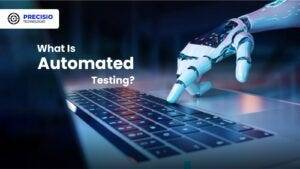#what are devops tools
Explore tagged Tumblr posts
Text
What is the definition of a DevOps Engineer? Exploring the Role, Responsibilities, and Skills: OpsNexa!
Learn about a DevOps engineer and what they do in the realm of software development. Learn about the role, important tasks, What Is a DevOps Engineer, required skills, and how DevOps engineers help to automate processes, improve communication, and ensure rapid, dependable software delivery.
#DevOps Engineer Role#What-Is-A-DevOps-Engineer#DevOps-Career-Guide#DevOps-Skills-And-Responsibilities#DevOps-Tools-And-Technologies
0 notes
Text

Visit Cloudastra Technology: Cloudastra DevOps as a Services to learn how tailored DevOps solutions can help your business scale faster and smarter.
#what is devops#devops engineer#devops engineer salary#devops tools#devops meaning#devops interview questions#devops engineer jobs#devops certification#devops jobs#devops services#devops consulting services
0 notes
Video
youtube
🔍 Git Architecture | Understanding the Core of Version Control 🚀
Ever wondered how Git works behind the scenes? This video breaks down the core architecture of Git and how it efficiently tracks changes. Learn:
- 🏗 How Git Stores Data: The difference between snapshots and traditional versioning. - 🔀 Key Components: Working directory, staging area, and local repository explained. - 🌐 Distributed System: How Git enables collaboration without a central server. - 🔧 Commit & Branching Mechanism: Understanding how changes are managed and merged.
Master Git’s architecture and take full control of your code! 💡
👉 https://youtu.be/OHMe-H35xWs
🔔Subscribe & Stay Updated: Don't forget to subscribe and hit the bell icon to receive notifications and stay updated on our latest videos, tutorials & playlists! ClouDolus: https://www.youtube.com/@cloudolus ClouDolus AWS DevOps: https://www.youtube.com/@ClouDolusPro THANKS FOR BEING A PART OF ClouDolus! 🙌✨
#youtube#Git for DevOps GitHub for DevOps version control for DevOps Git commands for beginners GitHub Actions CI/CD DevOps tools CI/CD pipelines Git#What Is Git?What Is Git Core Features and Use Cases?What Is GitHub?What Is GitHub Core Features and Use Cases?What Is GitHub Actions?What Is#cloudolus#cloudoluspro
0 notes
Text
What language are DevOps tools?

DevOps tools can be developed using various programming languages, and the choice of programming language often depends on factors such as the tool's functionality, target platform, and the preferences of the developers who create and maintain the tool. As a result, DevOps tools are available in a wide range of programming languages. Here are some programming languages commonly used for developing DevOps tools
Python
Python is a popular choice for DevOps tools due to its simplicity, readability, and extensive libraries. It is frequently used for scripting and automation tasks. Tools like Ansible, SaltStack, and many automation scripts are written in Python.
JavaScript/Node.js
JavaScript, especially when used with the Node.js runtime, is commonly used for building web-based DevOps tools and dashboards. Node.js provides excellent support for creating server-side applications and automation scripts.
Go (Golang)
Go is known for its performance, simplicity, and concurrency support. It is used for building lightweight and high-performance DevOps tools. Docker and Kubernetes are examples of projects that heavily rely on Go.
Ruby
Ruby is favored by some DevOps engineers for its elegant syntax and is used in tools like Chef and Puppet for configuration management. Ruby is also the language of choice for creating Ruby on Rails applications, which may be used for DevOps dashboards.
Java
Java is used for building robust and scalable DevOps tools, especially in larger enterprises. Jenkins, a widely-used CI/CD tool, is developed in Java.
Shell Scripting (Bash)
Shell scripting, specifically Bash scripting on Unix/Linux systems, is frequently used for writing quick automation scripts and command-line tools. Many DevOps scripts and one-off automation tasks are written in Bash.
PowerShell
PowerShell is a scripting language developed by Microsoft and is commonly used for automating tasks on Windows-based systems. It's often used in mixed Windows/Linux environments for DevOps automation.
Perl
While less common today, Perl has been historically used for writing system administration and automation scripts. Some legacy DevOps tools may still be written in Perl.
1 note
·
View note
Text
#🌟 Preparing for an Azure DevOps interview? Here are the top 5 questions you should know:#1️⃣ What is Azure DevOps?#2️⃣ Describe some Azure DevOps tools. 3️⃣ What is Azure Repos?#4️⃣ What are Azure Pipelines?#5️⃣ Why should I use Azure pipelines and CI/CD?#Get ready to impress your interview techquestions#kloudcourseacademy#AzureDevOps#InterviewPrep#TechQuestions
1 note
·
View note
Text
So, let me try and put everything together here, because I really do think it needs to be talked about.
Today, Unity announced that it intends to apply a fee to use its software. Then it got worse.
For those not in the know, Unity is the most popular free to use video game development tool, offering a basic version for individuals who want to learn how to create games or create independently alongside paid versions for corporations or people who want more features. It's decent enough at this job, has issues but for the price point I can't complain, and is the idea entry point into creating in this medium, it's a very important piece of software.
But speaking of tools, the CEO is a massive one. When he was the COO of EA, he advocated for using, what out and out sounds like emotional manipulation to coerce players into microtransactions.
"A consumer gets engaged in a property, they might spend 10, 20, 30, 50 hours on the game and then when they're deep into the game they're well invested in it. We're not gouging, but we're charging and at that point in time the commitment can be pretty high."
He also called game developers who don't discuss monetization early in the planning stages of development, quote, "fucking idiots".
So that sets the stage for what might be one of the most bald-faced greediest moves I've seen from a corporation in a minute. Most at least have the sense of self-preservation to hide it.
A few hours ago, Unity posted this announcement on the official blog.
Effective January 1, 2024, we will introduce a new Unity Runtime Fee that’s based on game installs. We will also add cloud-based asset storage, Unity DevOps tools, and AI at runtime at no extra cost to Unity subscription plans this November. We are introducing a Unity Runtime Fee that is based upon each time a qualifying game is downloaded by an end user. We chose this because each time a game is downloaded, the Unity Runtime is also installed. Also we believe that an initial install-based fee allows creators to keep the ongoing financial gains from player engagement, unlike a revenue share.
Now there are a few red flags to note in this pitch immediately.
Unity is planning on charging a fee on all games which use its engine.
This is a flat fee per number of installs.
They are using an always online runtime function to determine whether a game is downloaded.
There is just so many things wrong with this that it's hard to know where to start, not helped by this FAQ which doubled down on a lot of the major issues people had.
I guess let's start with what people noticed first. Because it's using a system baked into the software itself, Unity would not be differentiating between a "purchase" and a "download". If someone uninstalls and reinstalls a game, that's two downloads. If someone gets a new computer or a new console and downloads a game already purchased from their account, that's two download. If someone pirates the game, the studio will be asked to pay for that download.
Q: How are you going to collect installs? A: We leverage our own proprietary data model. We believe it gives an accurate determination of the number of times the runtime is distributed for a given project. Q: Is software made in unity going to be calling home to unity whenever it's ran, even for enterprice licenses? A: We use a composite model for counting runtime installs that collects data from numerous sources. The Unity Runtime Fee will use data in compliance with GDPR and CCPA. The data being requested is aggregated and is being used for billing purposes. Q: If a user reinstalls/redownloads a game / changes their hardware, will that count as multiple installs? A: Yes. The creator will need to pay for all future installs. The reason is that Unity doesn’t receive end-player information, just aggregate data. Q: What's going to stop us being charged for pirated copies of our games? A: We do already have fraud detection practices in our Ads technology which is solving a similar problem, so we will leverage that know-how as a starting point. We recognize that users will have concerns about this and we will make available a process for them to submit their concerns to our fraud compliance team.
This is potentially related to a new system that will require Unity Personal developers to go online at least once every three days.
Starting in November, Unity Personal users will get a new sign-in and online user experience. Users will need to be signed into the Hub with their Unity ID and connect to the internet to use Unity. If the internet connection is lost, users can continue using Unity for up to 3 days while offline. More details to come, when this change takes effect.
It's unclear whether this requirement will be attached to any and all Unity games, though it would explain how they're theoretically able to track "the number of installs", and why the methodology for tracking these installs is so shit, as we'll discuss later.
Unity claims that it will only leverage this fee to games which surpass a certain threshold of downloads and yearly revenue.
Only games that meet the following thresholds qualify for the Unity Runtime Fee: Unity Personal and Unity Plus: Those that have made $200,000 USD or more in the last 12 months AND have at least 200,000 lifetime game installs. Unity Pro and Unity Enterprise: Those that have made $1,000,000 USD or more in the last 12 months AND have at least 1,000,000 lifetime game installs.
They don't say how they're going to collect information on a game's revenue, likely this is just to say that they're only interested in squeezing larger products (games like Genshin Impact and Honkai: Star Rail, Fate Grand Order, Among Us, and Fall Guys) and not every 2 dollar puzzle platformer that drops on Steam. But also, these larger products have the easiest time porting off of Unity and the most incentives to, meaning realistically those heaviest impacted are going to be the ones who just barely meet this threshold, most of them indie developers.
Aggro Crab Games, one of the first to properly break this story, points out that systems like the Xbox Game Pass, which is already pretty predatory towards smaller developers, will quickly inflate their "lifetime game installs" meaning even skimming the threshold of that 200k revenue, will be asked to pay a fee per install, not a percentage on said revenue.

[IMAGE DESCRIPTION: Hey Gamers!
Today, Unity (the engine we use to make our games) announced that they'll soon be taking a fee from developers for every copy of the game installed over a certain threshold - regardless of how that copy was obtained.
Guess who has a somewhat highly anticipated game coming to Xbox Game Pass in 2024? That's right, it's us and a lot of other developers.
That means Another Crab's Treasure will be free to install for the 25 million Game Pass subscribers. If a fraction of those users download our game, Unity could take a fee that puts an enormous dent in our income and threatens the sustainability of our business.
And that's before we even think about sales on other platforms, or pirated installs of our game, or even multiple installs by the same user!!!
This decision puts us and countless other studios in a position where we might not be able to justify using Unity for our future titles. If these changes aren't rolled back, we'll be heavily considering abandoning our wealth of Unity expertise we've accumulated over the years and starting from scratch in a new engine. Which is really something we'd rather not do.
On behalf of the dev community, we're calling on Unity to reverse the latest in a string of shortsighted decisions that seem to prioritize shareholders over their product's actual users.
I fucking hate it here.
-Aggro Crab - END DESCRIPTION]
That fee, by the way, is a flat fee. Not a percentage, not a royalty. This means that any games made in Unity expecting any kind of success are heavily incentivized to cost as much as possible.

[IMAGE DESCRIPTION: A table listing the various fees by number of Installs over the Install Threshold vs. version of Unity used, ranging from $0.01 to $0.20 per install. END DESCRIPTION]
Basic elementary school math tells us that if a game comes out for $1.99, they will be paying, at maximum, 10% of their revenue to Unity, whereas jacking the price up to $59.99 lowers that percentage to something closer to 0.3%. Obviously any company, especially any company in financial desperation, which a sudden anchor on all your revenue is going to create, is going to choose the latter.
Furthermore, and following the trend of "fuck anyone who doesn't ask for money", Unity helpfully defines what an install is on their main site.
While I'm looking at this page as it exists now, it currently says
The installation and initialization of a game or app on an end user’s device as well as distribution via streaming is considered an “install.” Games or apps with substantially similar content may be counted as one project, with installs then aggregated to calculate the Unity Runtime Fee.
However, I saw a screenshot saying something different, and utilizing the Wayback Machine we can see that this phrasing was changed at some point in the few hours since this announcement went up. Instead, it reads:
The installation and initialization of a game or app on an end user’s device as well as distribution via streaming or web browser is considered an “install.” Games or apps with substantially similar content may be counted as one project, with installs then aggregated to calculate the Unity Runtime Fee.
Screenshot for posterity:

That would mean web browser games made in Unity would count towards this install threshold. You could legitimately drive the count up simply by continuously refreshing the page. The FAQ, again, doubles down.
Q: Does this affect WebGL and streamed games? A: Games on all platforms are eligible for the fee but will only incur costs if both the install and revenue thresholds are crossed. Installs - which involves initialization of the runtime on a client device - are counted on all platforms the same way (WebGL and streaming included).
And, what I personally consider to be the most suspect claim in this entire debacle, they claim that "lifetime installs" includes installs prior to this change going into effect.
Will this fee apply to games using Unity Runtime that are already on the market on January 1, 2024? Yes, the fee applies to eligible games currently in market that continue to distribute the runtime. We look at a game's lifetime installs to determine eligibility for the runtime fee. Then we bill the runtime fee based on all new installs that occur after January 1, 2024.
Again, again, doubled down in the FAQ.
Q: Are these fees going to apply to games which have been out for years already? If you met the threshold 2 years ago, you'll start owing for any installs monthly from January, no? (in theory). It says they'll use previous installs to determine threshold eligibility & then you'll start owing them for the new ones. A: Yes, assuming the game is eligible and distributing the Unity Runtime then runtime fees will apply. We look at a game's lifetime installs to determine eligibility for the runtime fee. Then we bill the runtime fee based on all new installs that occur after January 1, 2024.
That would involve billing companies for using their software before telling them of the existence of a bill. Holding their actions to a contract that they performed before the contract existed!
Okay. I think that's everything. So far.
There is one thing that I want to mention before ending this post, unfortunately it's a little conspiratorial, but it's so hard to believe that anyone genuinely thought this was a good idea that it's stuck in my brain as a significant possibility.
A few days ago it was reported that Unity's CEO sold 2,000 shares of his own company.
On September 6, 2023, John Riccitiello, President and CEO of Unity Software Inc (NYSE:U), sold 2,000 shares of the company. This move is part of a larger trend for the insider, who over the past year has sold a total of 50,610 shares and purchased none.
I would not be surprised if this decision gets reversed tomorrow, that it was literally only made for the CEO to short his own goddamn company, because I would sooner believe that this whole thing is some idiotic attempt at committing fraud than a real monetization strategy, even knowing how unfathomably greedy these people can be.
So, with all that said, what do we do now?
Well, in all likelihood you won't need to do anything. As I said, some of the biggest names in the industry would be directly affected by this change, and you can bet your bottom dollar that they're not just going to take it lying down. After all, the only way to stop a greedy CEO is with a greedier CEO, right?
(I fucking hate it here.)
And that's not mentioning the indie devs who are already talking about abandoning the engine.
[Links display tweets from the lead developer of Among Us saying it'd be less costly to hire people to move the game off of Unity and Cult of the Lamb's official twitter saying the game won't be available after January 1st in response to the news.]
That being said, I'm still shaken by all this. The fact that Unity is openly willing to go back and punish its developers for ever having used the engine in the past makes me question my relationship to it.
The news has given rise to the visibility of free, open source alternative Godot, which, if you're interested, is likely a better option than Unity at this point. Mostly, though, I just hope we can get out of this whole, fucking, environment where creatives are treated as an endless mill of free profits that's going to be continuously ratcheted up and up to drive unsustainable infinite corporate growth that our entire economy is based on for some fuckin reason.
Anyways, that's that, I find having these big posts that break everything down to be helpful.
#Unity#Unity3D#Video Games#Game Development#Game Developers#fuckshit#I don't know what to tag news like this
6K notes
·
View notes
Text
Why Do Most DevOps Transformations Fail Without Expert Consulting?

DevOps has become the go-to approach for improving alignment and coordination between development and operations teams, speeding up software delivery, and enhancing product quality. However, many companies struggle to implement DevOps successfully. In fact, several DevOps transformations fail — and one key reason or aspect is the lack of expert DevOps consulting behind those implementations.
Let’s see what happens and how expert consulting can make all the difference.
1. Lack of a Clear Strategy
DevOps isn’t just about using new tools or modern resources. As it’s also about changing how the teams work together with better co-ordination. Without a clear roadmap or strategy, teams often jump into DevOps without aligning their goals, processes, or workflows. DevOps consulting assists with structured plan and road map customized as per your organization’s needs, helping them avoid confusion and wasted efforts.
2. Poor Tool Integration
Many businesses begin or head using multiple DevOps tools without understanding how they fit together. As this leads towards workflow issues, data silos, and tool overload. Expert consultants and professionals know which tools work best for your tech stack and help integrate them smoothly for end-to-end automation.
3. Resistance to Change
DevOps requires a cultural shift, which can face pushback from teams used to traditional methods. Consultants and professional experts play a vital and keen role in guiding this change, training teams, and building a collaborative setting that embraces new ways and types of working.
4. Inadequate Skills and Experience
Hiring and training in-house DevOps experts can be time-consuming and costly. Many transformations fail because teams lack the right expertise. DevOps consulting brings experienced professionals who know what works and what doesn't — ensuring your transformation is done right the first time.
5. Ignoring Continuous Improvement
DevOps is not a one-time setup; it's an ongoing process of refinement. Without expert guidance, businesses may stop improving after initial implementation. Consultants and a group of experts help monitor progress, measure outcomes, and continuously optimize the pipelines and practices.
DevOps transformation is complex and major and attempting towards it alone often can lead to delays, rework, and frustration. Investing in DevOps consulting aids organizations to adopt best practices, avoid common pitfalls, and achieve faster, more sustainable results. Trusted companies like Suma Soft, IBM, and Cyntexa offer professional DevOps consulting services and offer professional expertise that can guide your business toward a successful transformation — efficiently and confidently with its adaptation and assessment into the infrastructure.
#it services#technology#saas#software#saas development company#saas technology#digital transformation#usa#canada
3 notes
·
View notes
Text
What Do DevOps Engineers Do? Exploring the Role, Responsibilities, and Skills | OpsNexa!
Discover the role of a DevOps engineer—what they do , the skills they bring, What Do DevOps Engineers, and the tools they use to accelerate development. This guide explores how DevOps engineers bridge the gap between development and operations, drive automation, streamline deployment pipelines, and enhance collaboration to deliver better software, faster.
#Devops engineer role#Devops responsibilities#What do devops engineers do#Devops career guide#Devops skills and tools#Devops duties
0 notes
Text

Visit Cloudastra Technology: Cloudastra DevOps as a Services to learn how tailored DevOps solutions can help your business scale faster and smarter.
#what is devops#devops engineer#devops engineer salary#devops tools#devops meaning#devops interview questions#devops engineer jobs#devops certification#devops jobs#devops services#devops consulting services
0 notes
Video
youtube
Introduction to Git: Understanding the Basics of Version Control
Git is a distributed version control system essential for modern software development. It enables multiple developers to collaborate efficiently by managing changes to code over time. Mastering Git is crucial for any developer or DevOps professional, as it supports streamlined workflows, effective collaboration, and robust code management.
What is Version Control?
Version control tracks changes to files, allowing you to recall specific versions and manage code history. It helps prevent conflicts by enabling team members to work together without overwriting each other’s changes. Git’s version control system is vital for maintaining a clear and organized development process.
Key Features of Git
1. Distributed Architecture: Git stores the entire repository locally for each developer, enhancing speed and allowing offline work. This is a shift from centralized systems where all data is on a single server.
2. Branching and Merging: Git supports multiple branches for isolated work on features or fixes. This facilitates experimentation and seamless integration of changes into the main codebase.
3. Staging Area: The staging area lets developers review changes before committing them, ensuring precise control over what gets recorded in the project history.
4. Commit History: Each change is recorded as a commit with a unique identifier, enabling developers to track, revert, and understand project evolution.
5. Collaboration and Conflict Resolution: Git's tools for handling merge conflicts and supporting collaborative development make it ideal for team-based projects.
Benefits of Using Git
- Enhanced Collaboration: Multiple developers can work on separate branches with minimal conflicts. - Flexibility and Efficiency: Git’s distributed nature allows offline work and faster local operations. - Reliable Code Management: Git's branching and merging capabilities streamline code management. - Security: Git uses SHA-1 hashing to ensure code integrity and security.
Why Learn Git?
Git is foundational for modern development and DevOps practices. It underpins tools like GitHub, GitLab, and Bitbucket, offering advanced features for collaboration, continuous integration, and deployment. Mastering Git enhances coding skills and prepares you for effective team-based workflows.
Conclusion
Understanding Git is the first step toward proficiency in modern development practices. Mastering Git enables efficient code management, team collaboration, and seamless CI/CD integration, advancing your career in software development or DevOps.
What Is Git?,What Is Git Core Features and Use Cases?,What Is GitHub?,What Is GitHub Core Features and Use Cases?,What Is GitHub Actions?,What Is GitHub Actions Core Features and Use Cases?,What Is GitLab?,What Is GitLab Core Features and Use Cases?,What Is Right Tools For DevOps? Git,GitHub,Version Control and Collaboration Essentials,GitLab,github actions ci/cd,git and github tutorial,git tutorial,git tutorial for beginners,how to use git,como usar git,what is git,git for devops,curso de github,version control system,git for beginners,version control,github tutorial,git basics,git repository,git explained,git introduction,open source,cloudolus,cloudoluspro,version control with git,git clone,git commit,dia a dia
Git for DevOps, GitHub for DevOps, version control for DevOps, Git commands for beginners, GitHub Actions CI/CD, DevOps tools, CI/CD pipelines, GitHub workflow examples, Git best practices. #GitForDevOps #GitHubForDevOps #VersionControl #DevOpsTools #CICDPipelines #GitHubActions #CloudComputing #DevOpsTutorials
***************************** *Follow Me* https://www.facebook.com/cloudolus/ | https://www.facebook.com/groups/cloudolus | https://www.linkedin.com/groups/14347089/ | https://www.instagram.com/cloudolus/ | https://twitter.com/cloudolus | https://www.pinterest.com/cloudolus/ | https://www.youtube.com/@cloudolus | https://www.youtube.com/@ClouDolusPro | https://discord.gg/GBMt4PDK | https://www.tumblr.com/cloudolus | https://cloudolus.blogspot.com/ | https://t.me/cloudolus | https://www.whatsapp.com/channel/0029VadSJdv9hXFAu3acAu0r | https://chat.whatsapp.com/D6I4JafCUVhGihV7wpryP2 *****************************
*🔔Subscribe & Stay Updated:* Don't forget to subscribe and hit the bell icon to receive notifications and stay updated on our latest videos, tutorials & playlists! *ClouDolus:* https://www.youtube.com/@cloudolus *ClouDolus AWS DevOps:* https://www.youtube.com/@ClouDolusPro *THANKS FOR BEING A PART OF ClouDolus! 🙌✨*
#youtube#Git for DevOps GitHub for DevOps version control for DevOps Git commands for beginners GitHub Actions CI/CD DevOps tools CI/CD pipelines Git#What Is Git?What Is Git Core Features and Use Cases?What Is GitHub?What Is GitHub Core Features and Use Cases?What Is GitHub Actions?What Is
0 notes
Text
Why I Love Studying at Sabaragamuwa University
🌿 Hey Tumblr fam! I just wanted to take a moment to share something close to my heart — my experience at Sabaragamuwa University of Sri Lanka, a place that’s more than just classrooms and assignments. It's where I found peace, passion, and purpose. 💚
🌄 A Hidden Gem in the Hills
Imagine studying on a campus surrounded by misty hills, green forests, and natural waterfalls. Sounds dreamy, right? Well, that’s exactly what SUSL in Belihuloya feels like. The air is fresh, the environment is peaceful, and nature literally whispers encouragement while you study. 😌🍃

📌 Location: Belihuloya, Sri Lanka 🔗 Official Website of SUSL
💻 My Faculty: Computing
As a proud student of the Faculty of Computing, I can honestly say that SUSL is more than qualified when it comes to academic excellence. 💯
Our professors are not just knowledgeable—they actually care. We work on cool projects, explore real-world tech, and even get support for internships and future careers.
?
👩💻 Tech, Talent & Tenacity
You might be surprised, but SUSL is seriously catching up with the tech world.
Let me break it down for you—our Faculty of Computing is organized into three departments, and each one opens up different futures:
🖥️ Department of Computing and Information Systems (CIS)
A great fit if you're interested in IT infrastructure, system design, software, and business applications
You learn how tech supports and transforms businesses, governments, and society
🛠️ Department of Software Engineering (SE)
Perfect if you love to build software from the ground up
Focuses on software architecture, testing, DevOps, and full development lifecycles
📊 Department of Data Science (DS)
The department of the future! 🌐
Teaches you how to work with big data, machine learning, AI, statistics, and more
If you like solving puzzles with data, this is your world
No matter which path you choose, you’ll get:
Modern course content aligned with global tech trends
Hands-on labs and access to real tools (GitHub, Python, VS Code, cloud platforms, etc.)
Internships with leading IT companies
Final-year projects that are often built with startups or community needs in mind
Some of my seniors are now working at top companies, others are doing research abroad—that’s the kind of transformation this faculty creates. 🙌
For more information: click here
🫶 Why SUSL Feels Like Home
Here’s a little list of what I adore about life here:
Friendly community – always someone to help you out
Calm campus – no traffic noise, just birds and waterfalls
Opportunities – tons of events, workshops, clubs
Affordable – both the university and the area are budget-friendly
Balance – education + mental wellness = perfect combo
🌐 Not Just a University – A Lifestyle
Sabaragamuwa University doesn't just prepare you for a career; it shapes you as a human being. It’s not all books and exams—we grow, we laugh, we support each other.
Whether you’re into tech, social sciences, management, or agriculture, there’s a faculty that fits your vibe.
✨ Learn more about SUSL here
💬 Final Thoughts
If you're thinking about studying in Sri Lanka, or even just curious about a different kind of university experience, I highly recommend checking out Sabaragamuwa University. It changed my life in the best way.
💚 Tag a friend who needs to hear about this gem! 📥 DM me if you want tips about the application process or student life here!
#SabaragamuwaUniversity#SUSL#SriLanka#CampusLife#UniversityExperience#StudentVibes#Belihuloya#HigherEducation#SriLankaUniversities#FacultyOfComputing
3 notes
·
View notes
Text
What tools are used by DevOps?

DevOps training in Chandigarh It relies on a wide range of tools to automate, streamline, and enhance various aspects of the software development and IT operations lifecycle. The choice of DevOps tools can vary depending on an organization's specific needs, technology stack, and preferences. Here's a list of some commonly used DevOps tools categorized by their primary functions:
Version Control
Git: Git is a distributed version control system used for tracking changes in source code during development. Popular Git platforms include GitHub, GitLab, and Bitbucket.
Continuous Integration and Continuous Delivery (CI/CD)
Jenkins: Jenkins is a widely-used open-source automation server that supports building, testing, and deploying code changes.
Travis CI: Travis CI is a cloud-based CI/CD service that integrates seamlessly with GitHub repositories.
CircleCI: CircleCI is a cloud-based CI/CD platform that automates the software development process.
GitLab CI/CD: GitLab provides built-in CI/CD pipelines for Git repositories.
Containerization and Orchestration
Docker: Docker is a containerization platform that allows developers to package applications and their dependencies into containers for consistent deployment.
Kubernetes: Kubernetes is an open-source container orchestration platform that manages containerized applications and services at scale.
Docker Compose: Docker Compose is a tool for defining and running multi-container Docker applications.
0 notes
Text
Build the Future of Tech: Enroll in the Leading DevOps Course Online Today
In a global economy where speed, security, and scalability are parameters of success, DevOps has emerged as the pulsating core of contemporary IT operations. Businesses are not recruiting either developers or sysadmins anymore—employers need DevOps individuals who can seamlessly integrate both worlds.
If you're willing to accelerate your career and become irreplaceable in the tech world, then now is the ideal time to sign up for Devops Course Online. And ReferMe Group's AWS DevOps Course is the one to take you there—quicker.

Why DevOps? Why Now?
The need for DevOps professionals is growing like crazy. As per current industry reports, job titles such as DevOps Engineer, Cloud Architect, and Site Reliability Engineer are among the best-paying and safest careers in technology today.
Why? Because DevOps helps businesses to:
Deploy faster using continuous integration and delivery (CI/CD)
Boost reliability and uptime
Automate everything-from infrastructure to testing
Scale apps with ease on cloud platforms like AWS
And individuals who develop these skills are rapidly becoming the pillars of today's tech teams.
Why Learn a DevOps Online?
Learning DevOps online provides more than convenience—it provides liberation. As a full-time professional, student, or career changer, online learning allows you:
✅ To learn at your own pace
✅ To access world-class instructors anywhere
✅ To develop real-world, project-based skills
✅ To prepare for globally recognized certifications
✅ J To join a growing network of DevOps learners and mentors
It’s professional-grade training—without the classroom limitations.
What Makes ReferMe Group’s DevOps Course Stand Out?
The AWS DevOps Course from ReferMe Group isn’t just a course—it’s a career accelerator. Here's what sets it apart:
Hands-On Labs & Projects: You’ll work on live AWS environments and build end-to-end DevOps pipelines using tools like Jenkins, Docker, Terraform, Git, Kubernetes, and more.
Training from Experts: Learn from experienced industry experts who have used DevOps at scale.
Resume-Reinforcing Certifications: Train to clear AWS and DevOps certification exams confidently.
Career Guidance: From resume creation to interview preparation, we prepare you for jobs, not course completion.
Lifetime Access: Come back to the content anytime with future upgrades covered.
Who Should Take This Course?
This DevOps course is ideal for:
Software Developers looking to move into deployment and automation
IT Professionals who want to upskill in cloud infrastructure
System Admins transitioning to new-age DevOps careers
Career changers entering the high-demand cloud and DevOps space
Students and recent graduates seeking a future-proof skill set
No experience in DevOps? No worries. We take you from the basics to advanced tools.
Final Thoughts: Your DevOps Journey Starts Here
As businesses continue to move to the cloud and automate their pipelines, DevOps engineers are no longer a nicety—they're a necessity. Investing in a high-quality DevOps course online provides you with the skills, certification, and confidence to compete and succeed in today's tech industry.
Start building your future today.
Join ReferMe Group's AWS DevOps Course today and become the architect of tomorrow's technology.
2 notes
·
View notes
Text
How DevOps Testing Services Improve Time-to-Market and Product Stability?
DevOps Testing Services

In today’s fast-paced and modern software developing industry, businesses are always under pressure to deliver high-quality products quickly or as soon as they can. Meeting deadlines without compromising on stability can be tough. This is where DevOps Testing Services play a critical role. They help streamline testing, improve product performance, and significantly lowers the time it takes generally to bring a product to market or in the industry.
What Are DevOps Testing Services?
DevOps Test Services combine software development (Dev) and IT operations (Ops) with continuous testing. Instead of going or opting for testing software after it's built, testing is integrated into every stage of the development process as a key aspect. This aids in identifying and fixing problems early, saving time and effort later.
1. Faster Time-to-Market
One of the biggest benefits of DevOps Testing Services is speed and reliability. Since testing happens continuously alongside development or side by side, issues are caught and resolved right away. This eliminates the chances of delays and shortens the development cycle, allowing the businesses to launch products faster.
2. Continuous Feedback and Improvement
With DevOps, teams get real-time feedback through automated testing tools and continuous integration pipelines. Developers and coders can make changes quickly and fast, by testing them immediately, and push updates without waiting for the full release cycle with its implementation. This makes the product development faster, easier and more responsive.
3. Improved Product Stability
DevOps Testing Services ensure stability by running frequent and thorough tests. This includes steps as unit tests, integration tests, performance tests, and security checks in its process. Bugs and glitches are caught early, lowering the risk of failures in production and during crafting. As a result, the businesses deliver and serve more secure, stable and reliable products to customers.
4. Enhanced Collaboration
DevOps promotes better collaboration and alignment between development and operations teams of the organizations. Everyone works together, shares responsibilities and uses the same tools and resources. This teamwork leads towards more efficient processes and fewer mistakes as compared to other factors and resources.
Why Does It Matter for Businesses Today?
Customers expect quick and regular updates, smooth performance, and bug-free experiences. DevOps Test Services assist the businesses to meet those expectations without sacrificing speed or quality at any par.
Companies like Suma Soft, IBM, and Cyntexa offer robust DevOps Test strategies customized to each business’s needs—helping them stay competitive, reduce downtime, and bring better products to market faster.
#devops#devops testing#saas#it services#technology#software#saas development company#saas technology#digital transformation#usa
3 notes
·
View notes
Text
Why Python Will Thrive: Future Trends and Applications
Python has already made a significant impact in the tech world, and its trajectory for the future is even more promising. From its simplicity and versatility to its widespread use in cutting-edge technologies, Python is expected to continue thriving in the coming years. Considering the kind support of Python Course in Chennai Whatever your level of experience or reason for switching from another programming language, learning Python gets much more fun.

Let's explore why Python will remain at the forefront of software development and what trends and applications will contribute to its ongoing dominance.
1. Artificial Intelligence and Machine Learning
Python is already the go-to language for AI and machine learning, and its role in these fields is set to expand further. With powerful libraries such as TensorFlow, PyTorch, and Scikit-learn, Python simplifies the development of machine learning models and artificial intelligence applications. As more industries integrate AI for automation, personalization, and predictive analytics, Python will remain a core language for developing intelligent systems.
2. Data Science and Big Data
Data science is one of the most significant areas where Python has excelled. Libraries like Pandas, NumPy, and Matplotlib make data manipulation and visualization simple and efficient. As companies and organizations continue to generate and analyze vast amounts of data, Python’s ability to process, clean, and visualize big data will only become more critical. Additionally, Python’s compatibility with big data platforms like Hadoop and Apache Spark ensures that it will remain a major player in data-driven decision-making.
3. Web Development
Python’s role in web development is growing thanks to frameworks like Django and Flask, which provide robust, scalable, and secure solutions for building web applications. With the increasing demand for interactive websites and APIs, Python is well-positioned to continue serving as a top language for backend development. Its integration with cloud computing platforms will also fuel its growth in building modern web applications that scale efficiently.
4. Automation and Scripting
Automation is another area where Python excels. Developers use Python to automate tasks ranging from system administration to testing and deployment. With the rise of DevOps practices and the growing demand for workflow automation, Python’s role in streamlining repetitive processes will continue to grow. Businesses across industries will rely on Python to boost productivity, reduce errors, and optimize performance. With the aid of Best Online Training & Placement Programs, which offer comprehensive training and job placement support to anyone looking to develop their talents, it’s easier to learn this tool and advance your career.

5. Cybersecurity and Ethical Hacking
With cyber threats becoming increasingly sophisticated, cybersecurity is a critical concern for businesses worldwide. Python is widely used for penetration testing, vulnerability scanning, and threat detection due to its simplicity and effectiveness. Libraries like Scapy and PyCrypto make Python an excellent choice for ethical hacking and security professionals. As the need for robust cybersecurity measures increases, Python’s role in safeguarding digital assets will continue to thrive.
6. Internet of Things (IoT)
Python’s compatibility with microcontrollers and embedded systems makes it a strong contender in the growing field of IoT. Frameworks like MicroPython and CircuitPython enable developers to build IoT applications efficiently, whether for home automation, smart cities, or industrial systems. As the number of connected devices continues to rise, Python will remain a dominant language for creating scalable and reliable IoT solutions.
7. Cloud Computing and Serverless Architectures
The rise of cloud computing and serverless architectures has created new opportunities for Python. Cloud platforms like AWS, Google Cloud, and Microsoft Azure all support Python, allowing developers to build scalable and cost-efficient applications. With its flexibility and integration capabilities, Python is perfectly suited for developing cloud-based applications, serverless functions, and microservices.
8. Gaming and Virtual Reality
Python has long been used in game development, with libraries such as Pygame offering simple tools to create 2D games. However, as gaming and virtual reality (VR) technologies evolve, Python’s role in developing immersive experiences will grow. The language’s ease of use and integration with game engines will make it a popular choice for building gaming platforms, VR applications, and simulations.
9. Expanding Job Market
As Python’s applications continue to grow, so does the demand for Python developers. From startups to tech giants like Google, Facebook, and Amazon, companies across industries are seeking professionals who are proficient in Python. The increasing adoption of Python in various fields, including data science, AI, cybersecurity, and cloud computing, ensures a thriving job market for Python developers in the future.
10. Constant Evolution and Community Support
Python’s open-source nature means that it’s constantly evolving with new libraries, frameworks, and features. Its vibrant community of developers contributes to its growth and ensures that Python stays relevant to emerging trends and technologies. Whether it’s a new tool for AI or a breakthrough in web development, Python’s community is always working to improve the language and make it more efficient for developers.
Conclusion
Python’s future is bright, with its presence continuing to grow in AI, data science, automation, web development, and beyond. As industries become increasingly data-driven, automated, and connected, Python’s simplicity, versatility, and strong community support make it an ideal choice for developers. Whether you are a beginner looking to start your coding journey or a seasoned professional exploring new career opportunities, learning Python offers long-term benefits in a rapidly evolving tech landscape.
#python course#python training#python#technology#tech#python programming#python online training#python online course#python online classes#python certification
2 notes
·
View notes
Text
Automated Testing vs. Manual Testing: Which One is Right for Your Project?

Achieving high-quality, reliable software stands as a fundamental requirement in software development. Successful testing functions as an essential tool to discover faults and build performance capabilities that create better user experience outcomes. Two main testing methods dominate the field: automated testing and manual testing. The process of quality software assurance uses different testing approaches that demonstrate their own advantages as well as weaknesses according to specific project requirements and scenarios. We will explore the specifics to determine which testing process works best for your system development efforts.
1. What Is Manual Testing?

Manual testing involves a human tester manually executing test cases without using automation tools. Key Characteristics:
The methodology focuses its efforts on user interface together with usability and experience testing.
Human-centered applications where selection requires discretion include ad hoc testing and enumerative testing as well as examinations that need human evaluation.
Human performers are required during this approach; thus, it demands substantial time.
2. What Is Automated Testing?

Software performing automated testing executes test cases through workflows and helpers. Key Characteristics:
Efficient for repetitive and regression testing.
Users must spend money on tools along with developing custom scripts for testing.
Reduces human error.
3. Advantages of Manual Testing

Human Intuition: Software testing professionals can detect kernels through their human cognitive ability that automated tools cannot match. The observation and evaluation of visual elements runs more efficiently through human operatives instead of advanced tools.
Flexibility: This method suits exploratory testing specifically because there are no pre-determined scripts available.
Low Initial Investment: Running this approach does not need tool purchases or applications to develop automation frameworks.
Adaptable for UI/UX Testing: Running this approach does not need tool purchases or applications to develop automation frameworks.
4. Advantages of Automated Testing

Speed: Executes repetitive tests much faster than humans.
Scalability: The system proves most effective for extensive projects that need constant system updates.
Accuracy: When performing recurring actions, automated systems minimize the chances of human mistakes.
Cost-Efficient in the Long Run: Once established and implemented, the system demands costly investments but ensures continuous development expenses decrease over time.
Better for CI/CD Pipelines: Such testing technology connects various development pipelines that support agile and DevOps methodologies.
5. Disadvantages of Manual Testing

Time-Consuming: The manual performance of repeated tests leads to delayed completion of projects.
Error-Prone: Large applications contain tiny bugs that human testers commonly fail to detect.
Not Ideal for Scalability: The process of increasing manual testing needs additional testers to avoid cost escalations.
6. Disadvantages of Automated Testing

Initial Costs: Organizations must provide high financial resources to procure testing tools together with developing programming constructs.
Limited to Pre-Defined Scenarios: These testing approaches work poorly for handling exploratory or ad hoc testing.
Requires Maintenance: Test scripts need frequent updates when application changes occur.
Not Suitable for UI/UX Testing: Struggles with subjective user experience evaluations.
7. When to Use Manual Testing

Small Projects: The testing method proves beneficial at a low cost for small applications and provides quick assessments.
Exploratory Testing: Testing this approach benefits projects whose scripts have not been defined yet or need evaluation for newly added features.
Visual and Usability Testing: Performing assessments on interface components together with design features.
8. When to Use Automated Testing

Large Projects: Handles scalability for projects with frequent updates.
Regression Testing: Program testing becomes more efficient through automation since automated assessments perform multiple tests following each update process.
Performance Testing: The system performs efficient capabilities to conduct load testing and stress testing.
Continuous Development Environments: Agile progression and DevOps implementations need automation as a core requirement.
READ MORE- https://www.precisio.tech/automated-testing-vs-manual-testing-which-one-is-right-for-your-project/
2 notes
·
View notes